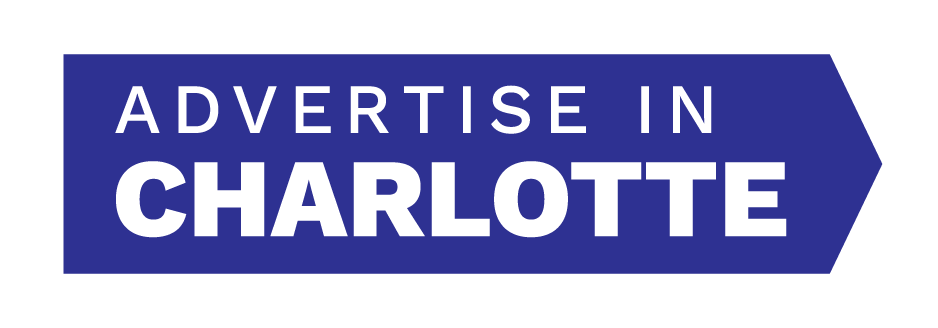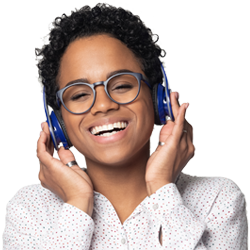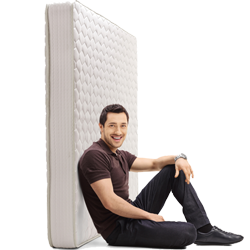There is positive news for the 92,000 small businesses in the Charlotte-Concord-Gastonia, NC-SC metro area. A majority of consumers say they are ready to start shopping again.
A lifestyle survey just released from Nielsen indicates 53% of Americans believe that despite the continuing pandemic, life is beginning to normalize, and they are likely to resume typical activities. Nielsen refers to this majority as "Ready-To-Go".
According to the survey, Ready-To-Go consumers now perceive less risk, feel safer, and believe their cities are emerging from crisis.
The key takeaway for Charlotte small business owners is that Ready-To-Go consumers are significantly more likely to start shopping within 30 days than the total population. These buyers, according to Nielsen, are looking to spend on home improvement, professional services, auto parts/repair, shopping, food & dining, and travel.
To capture a meaningful share of the money Ready-To-Go consumers will be spending requires local small business owners to advertise. By almost every metric, advertising on Charlotte radio is the best advertising option.
Read More
Topics
consumer spending,
radio advertising,
small business,
small business owner,
roi,
return on investment,
small business marketing,
small business advertising,
retail spending,
retail,
retail sales,
retail stores,
retailer,
advertise on radio,
advertising ROI,
consumer confidence
Every week, according to Nielsen, significantly more consumers are reached by local radio than by Charlotte TV.
For Charlotte small business owners whose marketing budgets have been ravaged by the pandemic, though, the question is which of these media can provide the best return for their advertising investments. An ROI study conducted by Nielsen and commissioned by Cumulus Media | Westwood One provides a conclusive answer.
Between April 30 and May 27 of this year, Nielsen analyzed the sales results of a major retailer who conducted an advertising campaign on both radio and television during that period.
Using their Portable People Meter panel of 80,000 consumers, Nielsen measured the purchase behavior of consumers who were exposed to the advertiser's commercials on both radio and television. To learn more about the methodology, click here.
The result of the study indicates that the money invested in radio advertising had a much stronger return than the money spent on TV.
Here are the key findings of the ROI study:
Read More
Topics
radio advertising,
small business,
small business owner,
television advertising,
roi,
return on investment,
small business marketing,
small business advertising,
retail spending,
retail,
television,
retail sales,
retail stores,
retailer,
cable television,
advertising ROI
Before we explain AVOD, it is important to understand SVOD.
Charlotte small business owners may not be familiar with SVOD, but chances are they let it into their homes and onto their phones.
SVOD is the abbreviation for Subscription Video On Demand. That is the collective name for streaming networks like Netflix, Hulu, Disney+, and Amazon Prime. For a monthly fee, these services provide commercial-free access to TV shows, original content, and movies.
These SVOD networks are delivered to viewers' phones, tablets, computers, and smart-TVs via the internet and not over-the-air or cable systems.
SVOD makes up a significant part of what advertisers refer to as OTT (Over-The-Top-Television) and CTV (Connected-Television). OTT/CTV is video-programming content that viewers can only watch on smartphones, tablets, computers, smart-TVs, Amazon Firesticks, and Roku Sticks. Nielsen reports that 92.3% of Charlotte adults own at least one of these devices.
Read More
Topics
best way to advertise,
small business,
small business owner,
television advertising,
small business marketing,
small business advertising,
OTT,
streaming media,
television,
cable television,
CTV,
streaming video,
svod,
avod
There are more than 1,700,000 car radios in the Charlotte area. On March 30, though, many of these devices became quarantined along with their owners. That was the day when the Governor of North Carolina shut down the state to slow the spread of COVID-19.
According to the Apple Mobility Index, the Governor's public-safety order caused traffic on Charlotte roadways to plummet to 65% of pre-pandemic levels.
By the beginning of July, however, the AMI indicates that traffic in Charlotte began to exceed pre-Covid levels. The surge in mobility is due, in part, to work-from-home, furloughed, and laid-off employees returning to their workplaces.
According to Nielsen, during the week of April 30, only 39% of adults with jobs were working outside-the-home. During the week of October 1, though, that number had expanded to 61%.
Read More
Topics
consumer spending,
small business,
small business owner,
small business marketing,
small business advertising,
in car aduio,
vehicle traffic,
effective advertising,
radio listening,
consumer confidence,
share of ear,
point of purchase,
mobility
Now would be a good time for Charlotte small business owners to consider increasing their advertising expenditures.
There are just over 92,000 small businesses in the Charlotte-Concord-Gastonia, NC-SC metro area, according to the U.S. Census Bureau. Based on some promising retail sales data, the Overall Sentiment Index among local small business owners has improved 28.5% between April 26 and October 12 of this year.
The best news for business owners came from the Commerce Department on Friday when it reported that retail sales rose by a seasonally adjusted 1.9% in September. This is the fifth straight month of gains.
Local retail gains are being powered by improving consumer confidence and a large pool of cash sitting in people's savings accounts.
The Conference Board's Consumer Confidence Index jumped to 101.8 in September, up 17.9% from August. This means consumers are in the mood to spend. Fortunately, they have money in the bank to do so.
Read More
Topics
consumer spending,
small business,
small business owner,
millennials,
roi,
return on investment,
small business marketing,
small business advertising,
retail spending,
retail,
retail sales,
retail stores,
retailer,
millennial parents,
advertising ROI,
consumer confidence,
purchase intent
Charlotte area business owners are expected to spend $51.3 million on newspaper advertising in 2020. This will be 31% fewer dollars than were spent in 2019, according to a study by Borrell Associates, a company that analyzes local media expenditures across the country.
Of course, the pandemic is part of the reason advertising revenues have plummeted at Charlotte newspapers. But, the more significant factor is the sustained erosion of readership.
For example, between October 2017 and March 2019, the Monday-Saturday circulation of the Charlotte Observer has decreased by 35%. The Sunday edition suffered a 34% decrease.
Among all advertising media available to small business owners, newspaper's ability to reach adult consumers now lags significantly behind Charlotte radio, cable, broadcast TV, and social media.
Read More
Topics
best way to advertise,
small business,
small business owner,
newspaper advertising,
charlotte observer,
newspaper readers,
small business marketing,
small business advertising
There are over 2.2 million adult consumers in the Charlotte area. Collectively, in a typical year, these shoppers would generate $49.6 billion in retail sales. This money would be spent on cars, shoes, fast-food, entertainment, groceries, mattresses, adult beverages, haircuts, makeup, and an over-abundance of other of goods and services. Their money was being spent on both the essential and the frivolous.
The way Charlotte consumers spend money changed radically in March as COVID-19 began to spread. Six months into the pandemic, shopping strategies are about to change again.
It started with panic buying. Consumers began ignoring prices and were paying what was ever necessary to ensure the safety, health, and comfort of their families. According to Nielsen, this sudden spike in demand caused widespread price increases. To put it in perspective, retail prices shot-up in 64% of all product categories stocked in grocery stores.
Almost immediately, advertising messages from local retailers shifted from promises of low prices and convenience to product availability and shopper safety.
Based on new research from Nielsen, consumers' shopping strategies are beginning to shift again. This will require Charlotte small business owners and retailers to also change their advertising strategies, too.
Read More
Topics
small business,
small business owner,
roi,
return on investment,
small business marketing,
small business advertising,
retail spending,
retail,
retail sales,
retail stores,
retailer,
corona,
coronavirus,
covid 19,
pandemic,
advertising ROI
Charlotte area shoppers are expected to spend over $9.8 billion during this year's November-January holiday season. This estimate is based on a forecast issued last week by Deloitte, the world's largest business accounting firm. This spending represents a 1-1.5% increase versus the same period last year.
How can Charlotte small business owners best compete for a significant share of the 2020 holiday expenditures?
"Retailers who prioritize customers’ desires for a safe, efficient shopping journey will be the big winners this year," writes Sean Gundz on www.ChainstoreAge.com.
"The holiday season is always a stressful time for retailers, especially the ones that make the majority of their revenue in the short window between Thanksgiving and Christmas," says Mr. Gundz.
"Within this window is Black Friday, which, along with other big holiday sales events, are going to look a lot different this year. Retailers must accommodate COVID-19 mandates that enable social distancing, minimize surface touching, and actually restrict foot traffic in their facilities. All while trying to optimize sales."
Mr. Gundz says there is no single way to deal with the challenges facing retailers this holiday season. He does offer five tips, though, that every Charlotte retailer can employ.
Read More
Topics
small business,
small business owner,
millennials,
small business marketing,
retail spending,
retail,
parent,
retail sales,
retail stores,
retailer,
millennial parents,
holiday advertising,
holiday shopping,
christmas
Charlotte area consumers are expected to spend $72 million on Halloween related activities in 2020, according to information from the National Retail Federation. This would be a slight 2.3% decrease from 2019. This is proof of the holiday's strong resistance to the pressures of a pandemic economy.
Based on data from the NRF's annual survey conducted by Prosper Insights & Analytics, more than 1.2 million Charlotte adults plan to participate in Halloween-related activities. Among those celebrants, safe at-home activities ranked highest: 53 percent plan to decorate their homes, 46 percent plan to carve a pumpkin, and 18 percent will dress up their pet.
“Consumers continue to place importance on celebrating our traditional holidays, even if by untraditional standards,” NRF President and CEO Matthew Shay said. “Retailers are prepared to meet the increased demand for seasonal décor, costumes, and other items that allow families the opportunity to observe Halloween safely.”
To earn a large share of Halloween spending in 2020, Charlotte small business owner will need to advertise to let consumers know their stores are open, stocked, and ready. By any metric, advertising on Charlotte radio is the best way to reach holiday shoppers.
Read More
Topics
small business,
small business owner,
millennials,
small business marketing,
small business advertising,
retail spending,
retail,
parent,
children,
retail sales,
retail stores,
retailer,
millennial parents,
halloween,
working mothers,
holiday advertising
There are more than 1,700,000 vehicles registered in the Charlotte area. Many need new windshield wipers, shocks, struts, brakes, air filters, ignition coils, and the hundreds of other items that fill the shelves of local auto part dealers.
Despite the pandemic induced slowdown, business at auto parts stores has grown nearly 13% since February, according to the US Census Bureau.
This explosive growth in auto parts sales directly relates to the average age of cars on Charlotte's roads.
"Per the latest study from IHS Markit, the current combined average age of vehicles has hit a record of 11.9 years," Rimmi Singhi wrote this week on NASDAQ.com. "The aging vehicles are a boon to auto parts, replacement, and repair companies. In a bid to ensure long-term functioning of the aging vehicle population, customers are making investments to replace faulty vehicle parts and components."
Also contributing to the rapid aging of cars on the road is the current demand for used versus new vehicles. According to the Bureau of Economic Analysis, the personal consumption expenditures (PCE) for used cars is 25% higher in August than it was during the same month last year.
Read More
Topics
best way to advertise,
radio advertising,
small business,
small business owner,
small business marketing,
small business advertising,
retail spending,
retail,
used vehicles,
automotive,
used cars,
used trucks,
retail sales,
retail stores,
retailer,
auto parts
Advertising on Charlotte television and cable is becoming less attractive to local business owners as viewers rapidly defect to alternative video entertainment sources including, Netflix, YouTube, Hulu, Amazon and Disney+.
Collectively these streaming services are referred to as Over-The-Top Television (OTT) and Connected-TV (CTV). Viewers can only access this OTT and CTV content via smartphone, tablets, computers, smart-TVs, Amazon Fire Sticks, and Roku Sticks, Nielsen reports that 92.3% of Charlotte adults own at least one these devices. Furthermore, they are using them.
According to Nielsen, OTT and CTV networks now reach 43.4% of all Charlotte consumers every week.
Read More
Topics
best way to advertise,
radio advertising,
small business,
small business owner,
television advertising,
small business marketing,
small business advertising,
OTT,
streaming media,
television,
pay-tv,
cable television,
advertise on radio,
CTV,
streaming video
New data from the US Census Bureau has optimistic news for Charlotte companies that sell business-to-business.
There are approximately 57,000 businesses in the Charlotte area, according to the Census Bureau. Indeed, many of these businesses have suffered since the onset of the Coronavirus, especially in April.
Census information is now showing positive indicators that the fortunes of area companies are improving. This includes those with 500 or fewer employees. These small businesses account for 91% of all Charlotte area firms.
During the week of April 26, 31% of Charlotte area small businesses reported temporary closures. By July 1, the number dropped to 7%.
Also, during that same week, 74% of Charlotte small business owners were reporting decreases in revenue versus the prior week. By the end of June, that number fell by almost half.
In both June and July of this year, national data shows all retail and food services spending significantly outperformed the prior year by between two and three percent.
As the business climate improves in the Charlotte area, the fortunes of B2B companies will accelerate as well. These include those businesses that sell office supplies, restaurant supplies, cleaning services, legal services, accounting services, transportation services, banking services, technology, and commercial real estate.
Read More
Topics
best way to advertise,
small business,
small business owner,
roi,
return on investment,
small business marketing,
small business advertising,
charlotte radio,
b2b advertising,
business-to-business advertising
Despite all of the media options available for small business owners to market their goods and services, advertising on Charlotte radio is still the best way to reach local consumers.
Adult consumers are spending 741 minutes per day consuming electronic media, according to a new study by Nielsen. This is 7.8% more time than they spent last year and 11.2% more than in 2018.
The typical daily media diet consists of radio, live TV, time-shifted TV, DVD/Blue-ray devices, game consoles, internet-connected devices, as well as internet via computers, smartphone apps, and tablet apps.
According to Nielsen, despite all of these media options, local radio reaches the most consumers every week.
Read More
Topics
best way to advertise,
radio advertising,
small business,
small business owner,
roi,
reach,
return on investment,
small business marketing,
small business advertising,
retail spending,
retail,
reach & frequency,
retail sales,
retail stores,
retailer,
advertise on radio,
advertising reach,
effective advertising
There is good news for Charlotte retailers and restaurants.
As a result of the pandemic, one-third of consumers indicate they will pay a premium for local brands and products, according to a recent study by Ernst & Young
However, before consumers will buy from a local business in Matthews, Davidson, Rock Hill, or any town in-between, they must know they can do so without risking their health.
Advertising is the only practical way to let local shoppers and diners in the Charlotte area know about the precautions and practices your small business has taken to reduce potential health threats.
Read More
Topics
best way to advertise,
small business,
small business owner,
small business marketing,
small business advertising,
retail spending,
retail,
restaurant,
retail sales,
retail stores,
retailer,
corona,
coronavirus,
covid 19
During July, 943,600 adult radio-listeners spent two hours per day listening to their favorite Charlotte radio stations, according to Nielsen. Although local consumers had spent fewer minutes listening at the onset of the pandemic, the current time tuned-in remains unchanged compared to a year ago.
Some advertising experts had predicted that as consumers spent more time at home because of COVID-19 concerns, the hours devoted to radio listening would decrease. That, however, was not the case.
In July of 2019, according to Nielsen, 29.6% of radio listening occurred at home. During July of this year, in-home listening jumped to 35.2%. Despite the reduction in out-of-home activities, though, consumers still spent the exact amount of time listening to Charlotte radio.
Read More
Topics
best way to advertise,
radio advertising,
small business,
small business owner,
spotify,
pandora,
small business marketing,
small business advertising,
corona,
coronavirus,
covid 19,
advertise on radio,
sirius/xm,
podcasts
More than one-third of Charlotte area households are 'cord-cutters' or 'cord-nevers'. This means, they have fired their cable or satellite television providers or never subscribed at all. Instead, these consumers are choosing to find their video entertainment elsewhere.
The number of local homes that subscribe to pay-TV services began plummeting in 2013. New technologies has allowed viewers to bypass cable and satellite for more compelling content at lower prices. These cord-cutters now depend on services like Netflix, Hulu, Disney+, and Amazon Prime to fill their multiple screens.
For many years, Charlotte small business owners have been investing a significant portion of their advertising budgets into cable-TV. The medium had proven to be a low-cost, high-reach alternative to buying commercial on over-the-air television stations.
Now, because of cord-cutting, there are 748,000 adult consumers with unconnected TVs. This profoundly diminishes the value proposition of advertising with local cable systems.
There is a powerful and affordable solution, however, for small business owners to reach both the diminishing cable audience and the expanding number of cord-cutters.
Read More
Topics
best way to advertise,
radio advertising,
small business,
small business owner,
television advertising,
small business marketing,
small business advertising,
television,
pay-tv,
cable television,
advertise on radio,
radio commercials,
cord-cutter,
cord-never,
satellite TV
Based on projections from the National Retail Federation, Charlotte area parents are expected to spend $288 million to equip K-12 kids for the upcoming school year. If so, then this shopping spree will be 29% bigger than last year's and the biggest take since 2012.
“By any measure, this is an unprecedented year with great uncertainty, including how students will get their education this fall whether they are in kindergarten or college,” NRF President and CEO Matthew Shay says.
“Most parents don’t know whether their children will be sitting in a classroom or in front of a computer in the dining room, or a combination of the two. But they do know the value of an education and are navigating uncertainty and unknowns so that students are prepared."
Along with pencils, paper, pens, and knapsacks, the NRF survey says 63 percent of K-12 families expect to buy computers and other electronics this year, up from 54% last year, and they expect to spend more at an average $274.44, up from $203.44 last year. The $71 difference accounts for the largest share of the overall increase in average spending of almost $93.
Also, because many parents are unsure if learning will take place at school or at home, back-to-school spending this year is expected to include home furnishings such as desks, chairs, and lamps.
To claim a meaningful share of this year's booming back-to-school economy, local retailers will need to advertise to let parents know that their stores are open, it is safe to shop, and the needed supplies are in stock.
By any metric, the best way to reach these parents is on Charlotte radio.
Read More
Topics
radio advertising,
small business,
small business owner,
millennials,
small business marketing,
small business advertising,
retail spending,
retail,
store traffic,
retail sales,
retail stores,
retailer,
advertise on radio,
back to school,
millennial parents
Car radios came to Charlotte in June of 1930. For just $120, about $1200 in present dollars, local drivers could install these early mobile devices into their Fords, Studebakers, Packards, and DeSotos,
The first car radios were built by the Galvin Manufacturing Company of Chicago. They named their invention, and eventually their company, Motorola.
Today, more than 1.7 million car radios fill ears of area drivers with music, news, sports, and information. As a result, local radio reaches more consumers than all other media.
In a typical pre-COVID-19 week, according to Nielsen, 89% of adult consumers would tune-in to a Charlotte radio station. This is significantly more than were reached by local TV, cable, social media, newspaper, or streaming media sites Pandora and Spotify.
Read More
Topics
best way to advertise,
radio advertising,
small business,
small business owner,
small business marketing,
small business advertising,
advertise on radio,
vehicle traffic,
in-car audio
If you were one of the 1.8 million adults who tuned-in to a Charlotte radio station last week, then no doubt you heard multiple commercials that included phrases like 'troubling times', 'uncertain times', 'unprecedented times', 'new normal', and 'we're in this together'.
In March, as the pandemic began to disrupt consumers' lives, using these phrases was a powerful way for North Carolina small business owners to acknowledge the severity of the crisis and to exhibit empathy. But 120 days later, these words have become cliche and have lost potency.
A cliche, says the Oxford Dictionary, is "a phrase or opinion that is overused and betrays a lack of original thought."
According to the Writing Center at The University of North Carolina, the dependence on cliches could create a harmful perception of a business that uses them. For instance, these overused phrases can make an advertiser's message seem boring. They can be perceived as vague. They can be interpreted to be a sign of laziness. They can also result in a lack of credibility.
The words a Charlotte small business chooses for its advertising will have the most significant effect on sales. That's why eliminating cliches is critical.
Read More
Topics
radio advertising,
small business,
small business owner,
small business marketing,
small business advertising,
advertise on radio,
commercial length,
write a commercial,
writing a commercial,
effective advertising,
radio commercials,
creative,
scripts
This year, according to Nielsen, 2.1 million Charlotte area consumers will spend $1.2 billion on eco-friendly goods and services. Sales for sustainable products have grown 20% since 2014, a trend expected to continue into 2021.
Tensie Whelan and Randi Kronthal-Sacco of the New York University Stern Center for Sustainable Business write in the Harvard Business Review, "Consumers are voting with their dollars against unsustainable brands. The legacy companies that will thrive are those that accept this shift and are willing to pivot.”
For Charlotte small business owners who are skeptical that sustainability affects purchase decisions, retail analyst Stacey Widlitz provided this advice, recently, in Forbes.
"Retailers only need to look to IBM's recent study, in association with the National Retail Federation, to understand just how fast consumer priorities are changing," says Ms. Widlitz. "Findings from the study revealed nearly 60% of consumers surveyed are willing to change their shopping habits to reduce environmental impact. For the nearly 80% of respondents who said sustainability is important to them over 70% would pay a premium of 35% on average."
To compete for a share of consumers' spending on green goods and services requires local small business owners to advertise.
Read More
Topics
best way to advertise,
radio advertising,
small business,
small business owner,
millennials,
small business marketing,
small business advertising,
retail spending,
retail,
retail sales,
retail stores,
retailer,
advertise on radio,
sustainable,
green products,
eco-friendly
Before the onset of COVID-19, more than 420,00 Charlotte area households were planning to spend $794 million on furniture, according to Nielsen. Unfortunately, many of those plans were put on pause as consumers sheltered in place to help slow the spread of the virus.
A recent study by Elevate | SmithGeiger suggests that the fortunes of home furnishing retailers, however, are about to improve.
According to the study, 32% of consumers who had been planning to buy furniture will do so within three months of the pandemic easing. Fifty percent will do so within six months. The numbers for mattress shoppers are even stronger.
To capture a significant share of the post-pandemic sales of furniture and mattress will require retailers to advertise. The most effective way to reach the customers who are ready to buy is on Charlotte radio.
Read More
Topics
best way to advertise,
radio advertising,
small business,
small business owner,
small business marketing,
small business advertising,
retail spending,
retail,
furniture,
retail sales,
retail stores,
retailer,
advertise on radio,
mattress
March is the biggest single month for used car sales in the Charlotte area. During these 31 days alone, local pre-owned vehicle dealers are expected to bring in $101 million in sales. This will represent 10% of their annual revenue.
By the end of May, these dealers owners will sell more than $282 million worth of pre-owned cars and trucks. This, undoubtedly, makes March-May 'used car season' in Charlotte.
Although most Charlotte used car dealers are small business owners, they do really big business. In all, over the next 12 months, more than 349,000 pre-owned vehicles will be driven off their lots.
To capture a larger share of the area's $1.1 billion used car market requires pre-owned vehicle dealers to advertise. By any measure, the best way for these business owners to advertise is on Charlotte radio.
Read More
Topics
best way to advertise,
consumer spending,
radio advertising,
social media advertising,
small business,
television advertising,
newspaper advertising,
facebook,
millennials,
online advertising,
digital advertising,
small business marketing,
used vehicles,
automotive,
used cars,
used trucks
Advertising is critical to the success of every North Carolina small business owner. One of the most powerful elements of any advertising campaign is how many people it reaches.
Nielsen, the world's largest consumer insights company, found that advertising reach has a more significant effect on sales than branding, recency, and context.
There are many ways a local business owner can advertise. This includes traditional media like Charlotte radio, local TV, and newspaper. It also includes online advertising options such as Facebook, Instagram, and Pandora.
They type of customer an individual business needs to reach depends on the goods and services the company sells. For instance, a daycare operator might want to reach households with young children. On the other hand, a real estate agent could be looking for consumers in the market to purchase a new home.
Read More
Topics
best way to advertise,
consumer spending,
radio advertising,
social media advertising,
small business,
small business owner,
television advertising,
newspaper advertising,
charlotte observer,
online advertising,
digital advertising,
small business marketing,
small business advertising

























